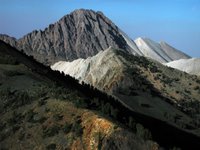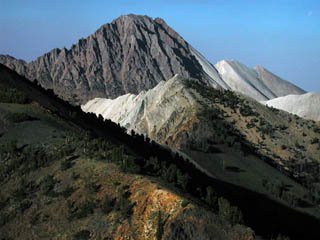 Here is a short list of Google Earth Blogs that I watch frequently.
Here is a short list of Google Earth Blogs that I watch frequently.Google Earth Blog, Ogle Earth, and Juicy Geography's Google Earth page.
(Note - The image links to my Google Earth video on Blip.tv>>)
Almost every day there are very interesting posts on the Google Earth Blog by Frank Taylor. It "is dedicated to Google Earth (GE) news, features, tips, technology and applications."
Today, for example there is a post identifying a new feature that the Digital Urban is developing to allow Google Earth users a way to view high resolution360 degree panoramas directly within Google Earth. On the Digital Urban Blog they have made a stand alone video demonstration available to show how his will work.
On December 19, Frank Taylor created a list of the "Top 25 Stories from Google Earth Blog for 2006." Out of nearly 600 blog entries these are the ones that were "pivotal points in the development of Google Earth, others were significant illustrations of some important event or place, and others were just fun things someone found or did in Google Earth."
The Ogle Earth Blog about Google Earth is published by Stefan Geens in Stockholm, Sweden. He posts information that is often similar, but also different than the Google Earth Blog.
Noel Jenkins in the UK has created the Juicy Geography web site to share ideas and resources especially related to teaching and education. The Juicy Geography's Google Earth Page is now a blog.



